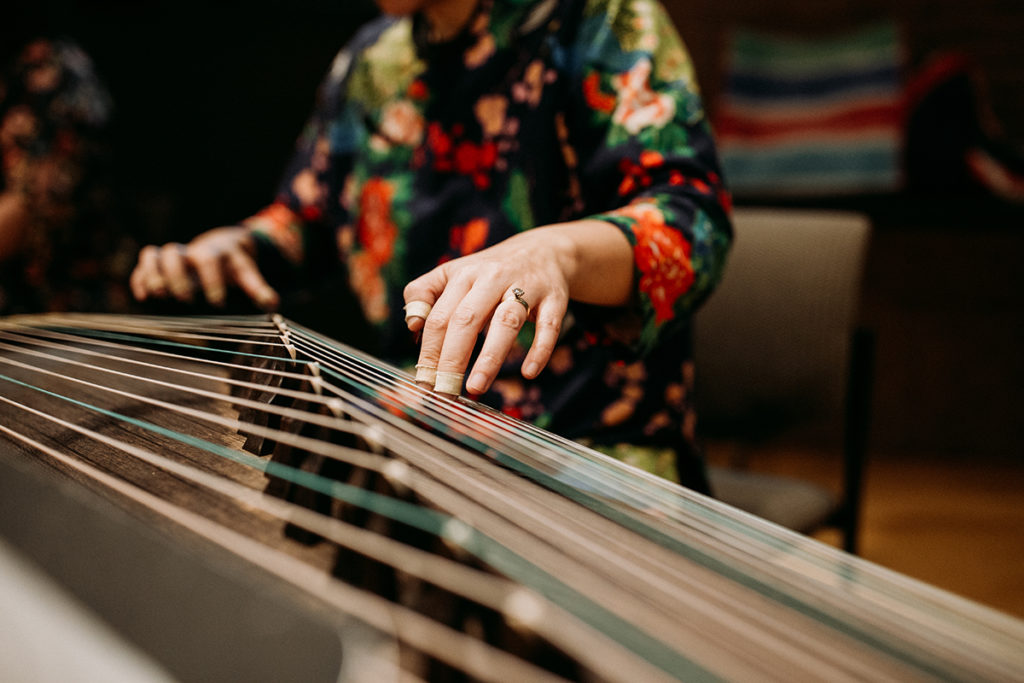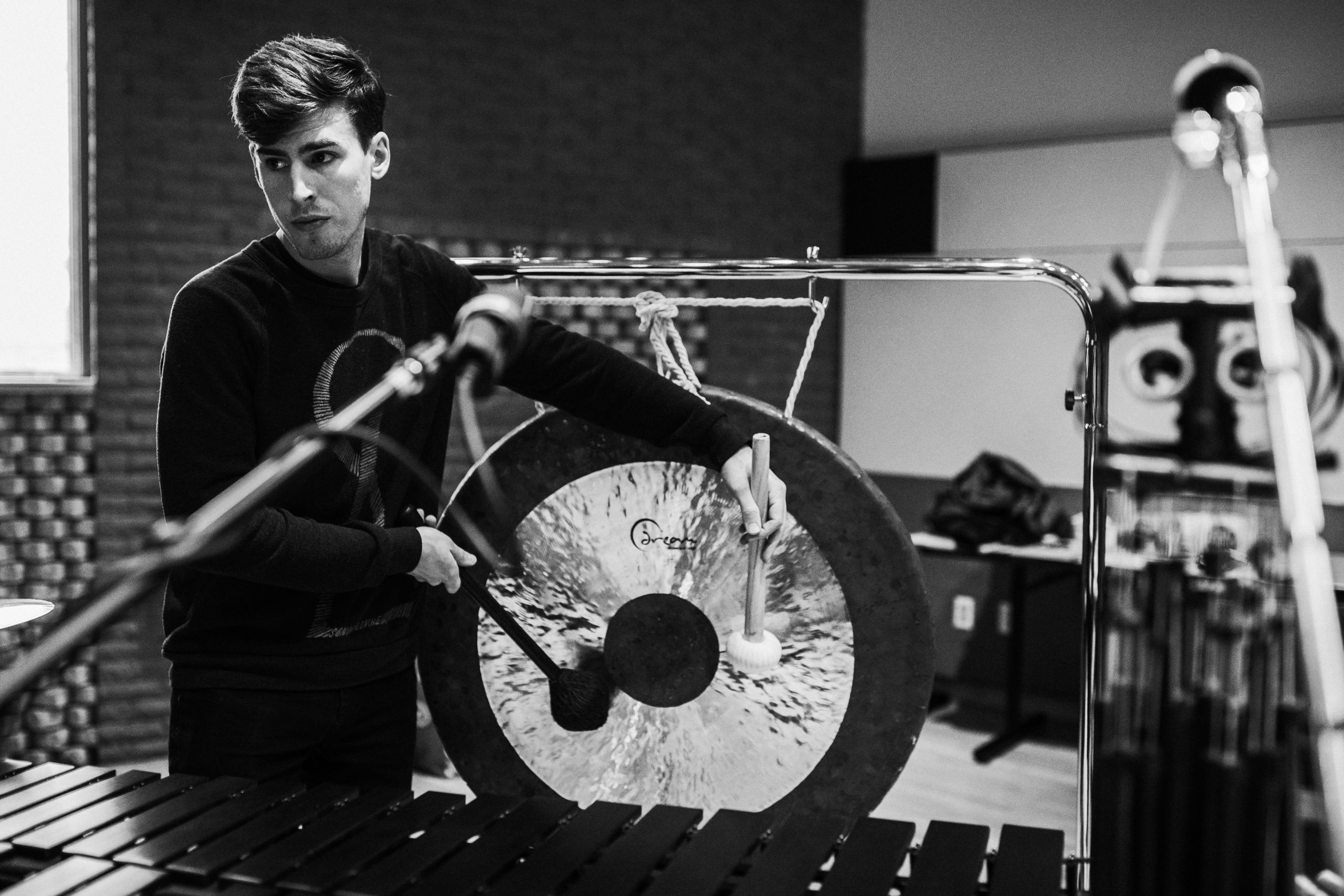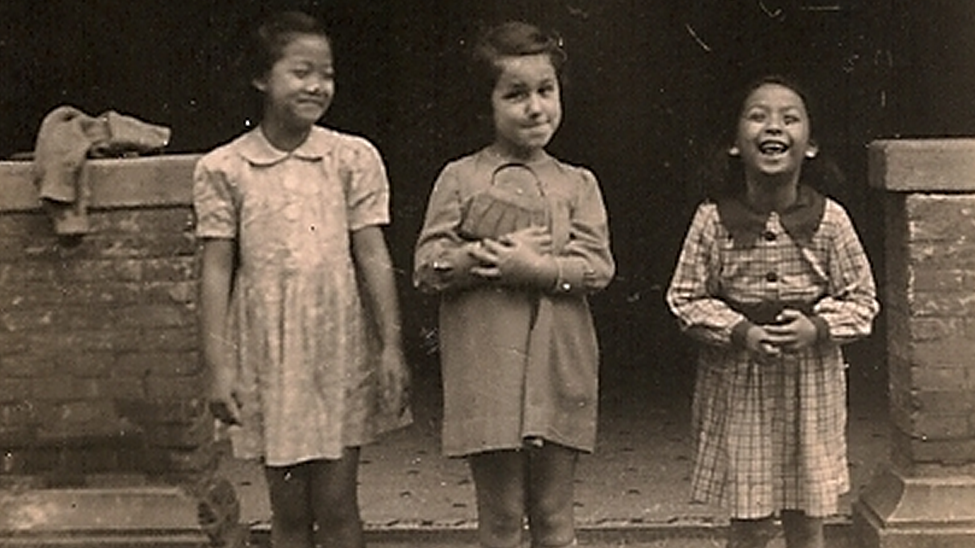
Eighty years ago, as Jewish refugees fled Nazi rule in Europe, one of the few places that allowed them to come was Shanghai, China.
It’s a lesser-known part of World War II history and one that captured the attention of Nashville composer Wu Fei, who wrote a piece about the lost possibilities of this community. She premieres this weekend with the Nashville music ensemble Chatterbird.
The genesis of the piece came across a documentary called Shanghai Ghetto, which Wu Fei found more than a decade ago. She wasn’t sure what the title referred to.
“I saw the photos on the cover,” she said — Chinese and Jewish people from World War II. “I brought it home and I watched it, and I cried like a baby the whole time.”
The film told the story of the estimated 20,000 Jewish refugees who lived in Shanghai under Japanese occupation during the war. Many later moved to San Francisco.
This felt personal to her — Fei herself is a Chinese immigrant, married to a Jewish man — and then, while she watched the current refugee crisis unfold, an opportunity to write for chamber music ensemble Chatterbird led her to compose Hello Gold Mountain.

composer Wu Fei performs excerpts from “Hello Gold Mountain” on “Live in Studio C”Kara McLeland91Classical
“In Chinese,” Fei clarified, “San Francisco is ‘Old Gold Mountain.'”
In Hello Gold Mountain, Wu Fei combines her own guzheng, a traditional Chinese instrument, with the oud — a stringed instrument from the middle-east and popular in Israel; similar to a lute, played by Silk Road Ensemble’s Shanir Ezra Blumenkranz.

Shanir Ezra Blumenkranz on oudKara McLeland91Classical
The piece also uses Chatterbird’s mixed classical instrumentation to create a soundscape emblematic of the piece and story itself. Traditional instruments from these two cultures blend with the sound of the Second Viennese School: the cultural so-called “high art” that refugees had left behind when they fled Nazi Europe. This included innovative and envelope-pushing pieces of Western classical music like Schoenberg and Webern.

Chatterbird member Jesse Strauss performing “Hello Gold Mountain”Kara McLeland91Classical
Rabbi Mark Schiftan, who serves at the Temple in Nashville, described what these families chose to leave behind: “These capitals, particularly Vienna, of Western civilization and art and music and the like — to migrate to a community that was as foreign to them as night could be to day.”
The piece holds a deep personal significance for Schiftan: His parents were among those who fled to China.
“For us, the Shanghai Jewish community was a sustaining force in our family’s survival of the darkness that fell on Europe,” he said.

A Jewish girl and her Chinese friends in the Shanghai Ghetto during WWII, from the collection of the Shanghai Jewish Refugees Museumwikimedia commons
The Shanghai ghetto was liberated from Japanese occupation in 1945, and in the following years the refugees mostly left China for Israel or San Francisco. So Wu Fei describes her piece as a requiem — not for an individual, but for missed opportunities for connection in a community that largely no longer exists.
“Both the Jewish culture and the Chinese culture historically were known for being very innovative — from appreciating the old to building new things on top of it. And also very math-oriented people. And there could be, who knows, endless possibilities,” she says. “And not just the music.”
When Schiftan heard a preview of the piece, he described it as both touching and prescient to the international situation today.
“No one leaves their homeland by choice,” he said. “They leave it by and large because what they fear there is even more fearful and dangerous to them than making the journey to the unknown.”
While the work can serve as a warning for the kind of immigration issues we face today, it also holds a model for the potential harmony of coming together.
Chatterbird will premiere Hello Gold Mountain on Saturday, Feb. 23, at Vanderbilt University. To hear more of the music, visit the Live in Studio C archive.
Listen to WPLN’s Emily Siner’s full interview with Rabbi Mark Schiftan, below.
The headline of this article and the description of the oud were updated to better reflect the instrument’s origin.